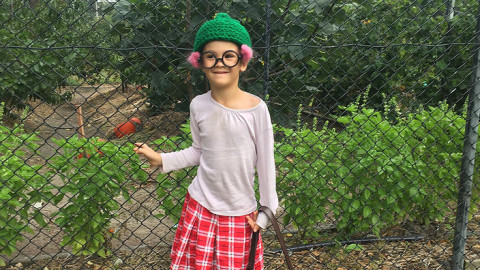
When you’re a parent of a child with high-functioning autism, you learn to make allowances. But should borderline arachnophobe Ian Rose allow his son a pet spider for his birthday?
Ian Rose
Spiders. Why did it have to be spiders? The latest in a series of obsessive enthusiasms that have characterised our son’s early childhood, the spider is not a beast to which I’ve ever warmed.
I thought the scarecrows were bad enough. His scarecrow phase was around this time last year, coming just after the mallet fetish and coinciding with the violent old lady from Shaun The Sheepthing.
At one point, our house and yard were festooned with menacing scarecrows we’d put together at his impassioned behest, my stock of old clothing running very low. Bumping into one of that mob in the hallway past midnight could be harrowing.
But scarecrows are cuddly compared to spiders.
Yeah, yeah, I know they keep other pests under control and they’re good to have around, but let’s face it, they’re creepy little bastards of baneful vibes and belligerent attitudes. And sometimes, up where I live, not so little. I’m talking the size of a chunky guinea pig.

Ian Rose's five-year-old son can't get enough of spiders, the latest of his "obsessive enthusiasms."
Did you know a disturbed tarantula will shoot poison hairs from its butt? These things are nasty. And not in a good way.
Our son was diagnosed with high-functioning autism, aka Asperger’s, last year, and we’re still working out as we go along what that means. The diagnosis has changed our understanding of the way he sees the world, and means we cut him a fair length of boundary slack as we learn to distinguish, say, ASD meltdown from five year-old tantrum.
Of course, lots of kids his age have their obsessions. Dinosaurs and Disney princesses, Pokemon and Minecraft. But our boy’s single-minded commitment to whatever is currently lighting his fire is on another level.
The first thing he says to me, as he clambers into our bed at half-past six on the dot each morning, administering a sharp knee to my testicles as he does so, will be spider-related. Later in the day, an interaction along these lines will preface hostilities:
Son: Dad, will you draw me a spider? A huntsman.
Dad: I will, as long as we do some writing afterwards. I’ll write “s-p-i-d-e-r” and you can copy it.
Son: Then draw me five spiders. All different types.
Dad: Three.
Son: Five.
Dad: Will you pinky-promise that you’ll do the writing with me afterwards? We definitely need to do your ABCs.
Son: Yes I will.
The breaking of a pinky-promise can never be taken lightly; hence the showdown. Eventually a compromise will be reached. He’ll scribe a few “S”es, but only after I threaten to take down some of his spiders.

What grandmothers can teach science about autism
Women who have raised a child with autism may have the ability to spot subtle signs of the condition in their grandchildren.
They are all over the house, his spiders. There’s the gigantic furry specimen hanging from his ceiling (nice one, grandparents), half a dozen pipe-cleaner-fashioned critters crouching in corners, spider drawings cut out and stuck to the wall, cardboard versions dangling from lamps. I nearly had a heart attack the other day, reaching for the toilet brush to find a particularly convincing installation, bright red eyes, kitchen foil fangs and all, staring at me from the dark side of my buttock.
He’s become a proficient huntsman-seeker, too, which makes camping trips a delight.
His sixth birthday is coming up, and he wants a pet spider. Tarantula, he thinks, once we talk him down from the bird-eater. Despite the cold pang of dread that strikes my heart at the prospect of sharing my home with such a creature - some resentful arachnid busily plotting escape and vengeance (spiders have massive, evil brains, you know) - I find myself looking into it.
I appreciate there’s a fine line between accommodating behaviours to support his needs and spoiling him.
But the cold reality is that as he grows up, he’s far more likely to experience anxiety, depression or a host of other challenges than children otherwise wired. He’s recently started school, and it’s tough to see that socially it’s not going to be a picnic for him.
I appreciate there’s a fine line between accommodating behaviours to support his needs and spoiling him.
If there’s something we can do to make him happy, why wouldn’t we do it? It’s the excuse of indulgent parents everywhere, I know, but with him we just can’t get past it.
Luckily it turns out you have to be over 18 to keep a tarantula.
So instead we’re going to have a party with a visit from a wildlife group, who are bringing a trove of crawling and slithering stuff, with a special request made for a spotlight on spiders. There is an element of risk in this. Tears or worse from the guests could factor, and it’s going to be awkward if some kid gets bitten by something. What’s more, as host, I may be required to handle these things myself.
Still, it could be lot of fun, one for the album, like the scarecrow party we threw for his fifth. A brilliant day.
The look on his face, as he stomped around in that old lady outfit we made him, was worth every single battering I took from his handbag. That’s parenting, right? Right?